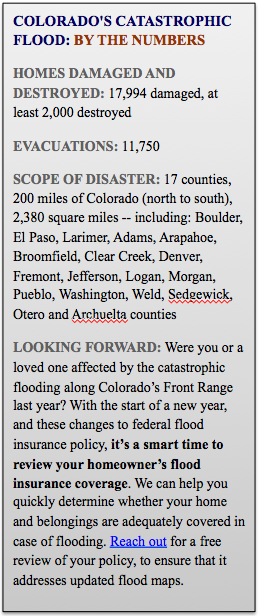 |
| More than 5.6 million people hold flood insurance policies in over 21,800 communities across the country |
Homeowners worried about their premiums going up can now breathe a measured sigh of relief. Both the U.S. Senate and House have voted to delay steep hikes in flood insurance rates for millions of property owners in coastal and flood-prone areas.
Read our update to this story here.
Washington, DC – In late January, the U.S. Senate voted to delay certain measures of the 2012 Flood Insurance Reform Act, delaying significant rate hikes in federal flood insurance rates. Last week, the U.S. House passed its own version of the bill. Assuming Senate agreement, hundreds of thousands of homeowners will see a welcome cap on their premiums.
Washington, DC – In late January, the U.S. Senate voted to delay certain measures of the 2012 Flood Insurance Reform Act, delaying significant rate hikes in federal flood insurance rates. Last week, the U.S. House passed its own version of the bill. Assuming Senate agreement, hundreds of thousands of homeowners will see a welcome cap on their premiums.
The bill delays
huge premium increases that are supposed to phase in next year and beyond under
new and updated government flood maps, by retaining most existing flood
insurance subsidies. The delays are in order to give the Federal Emergency
Management Agency (FEMA) time to complete an affordability study and develop
recommendations for a policy to assist working class homeowners who cannot
afford their revised premiums, and to guarantee that its updated flood maps are
accurate.
These changes
follow an overhaul to the National Flood Insurance Program (NFIP) that Congress
passed in 2012 (the Biggert-Waters Flood Insurance Reform Act (BW-12), which
you can read in full at this link), to stabilize the bankrupt program. The
premium increases that were set to occur resulted from changes to how the government
analyzes flood risk, using modern weather patterns and environmental changes to
create a more accurate reflection of “true flood risk.”
Under the 2012
changes, owners of second homes, frequently flooded properties and businesses
in flood areas would gradually lose existing subsidies and pay 25 percent more yearly
until they reach an actuarially sound rate.
Sensing negative
immediate impacts of BW-12, the House and Senate recently passed separate reform
bills to reverse some of the changes. January 30th saw the Senate’s
initial version of the bill, which ultimately was a broader attempt, and
ultimately set out to delay many of the intended premium increases.
The House
version of the bill is slightly more conservative. Approved on March 4th,
it seeks to provide retroactive funds for people who have seen large flood
insurance premium increases due to the sale or purchase of a home, and limit
increases to 15 to 18 percent, depending on specific flood map data.
Although it’s
yet to be seen if the House version passes through the Senate and becomes
federal law, recent rumblings from Washington have provided little negative
feedback. Several key Senators have been on record stating that approval is
likely. Although it’s not a full-on delay, relieving affected homeowners from
any worry, it’s a positive
for those who would be financially affected.
 |
| Many Coloradans lost homes, cars, and businesses in the path of the floods that swept the state in September 2013. (Photo By Helen H. Richardson/The Denver Post) |
The overall
message to homeowners is that if you currently own a flood insurance policy or are
concerned with it as a potential risk, enjoy the additional funds in your bank
account for the time being. However, continue to be informed of your home’s
risk and changes to premiums following the final government policy.
We can help you
assess what this all means for your home (and your bank account), to make sure
your home is well protected. Call us or visit us online for an easy quote, or more
information.
John Jacquat: (303) 834-1001


No comments:
Post a Comment